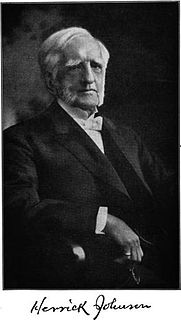A Quote by Laura Story
But there's a decision that I find God is asking us to make: whether we are going to choose to interpret our circumstances based on what we hold to be true about God, or whether we're going to judge what we hold to be true about God based on our circumstances.
Related Quotes
There are two gods. The god our teachers teach us about, and the God who teaches us. The god about whom people usually talk, and the God who talks to us. The god we learn to fear, and the God who speaks to us of mercy. The god who is somewhere up on high, and the God who is here in our daily lives. The god who demands punishment, and the God who forgives us our trespasses. The god who threatens us with the torments of Hell, and the God who shows us the true path.
There are two gods. A god who casts us off because of our sins, and a God who calls to us with His love.
God allows and at times causes us to go through the kinds of circumstances that strip away all falsehood and leave us with our real selves. God's ultimate intent is not to leave us faithless, but to leave us faith-full. There are few things as exhilarating as going through the fire and finding that you had the resilience to make it through. All of us wonder at times whether we have what it takes. God wants to bring us to a place where we have no doubt of the work He has done within us.
All men and women are born, live, suffer and die; what distinguishes us one from another is our dreams, whether they be dreams about worldly or unworldly things, and what we do to make them come about... We do not choose to be born. We do not choose our parents. We do not choose our historical epoch, the country of our birth, or the immediate circumstances of our upbringing. We do not, most of us, choose to die; nor do we choose the time and conditions of our death. But within this realm of choicelessness, we do choose how we live.
Those who make us believe that anything’s possible and fire our imagination over the long haul, are often the ones who have survived the bleakest of circumstances. The men and women who have every reason to despair, but don’t, may have the most to teach us, not only about how to hold true to our beliefs, but about how such a life can bring about seemingly impossible social change.
Whether you interpret the Bible as literature or as the final word of whatever God may be, Christianity has given us an image of death and sexuality that we have based our culture around. A half-naked dead man hangs in most homes and around our necks, and we have just taken that for granted all of our lives.
God's unfailing love for us is an objective fact affirmed over and over in the Scriptures. It is true whether we believe it or not. Our doubts do not destroy God's love, nor does our faith create it. It originates in the very nature of God, who is love, and it flows to us through our union with His beloved Son.
Do we not see God at work in our circumstances? Dark times are allowed and come to us through the sovreignty of God. Are we prepared to let God do what He wants with us? Are we prepared to be separated from the outward, evident blessings of God? Until Jesus Christ is truly our Lord, we each have goals of our own which we serve. Our faith is real, but it is not yet permanent. And God is never in a hurry. If we are willing to wait, we will see God pointing out that we have been interested only in his blessings, instead of God Himself.
In order to trust God, we must always view our adverse circumstances through the eyes of faith, not of sense. And just as the faith of salvation comes through hearing the message of the gospel (Romans 10:17), so the faith to trust God in adversity comes through the Word of God alone. It is only in the Scriptures that we find an adequate view of God's relationship to and involvement in our painful circumstances. It is only from the Scriptures, applied to our hearts by the Holy Spirit, that we receive the grace to trust God in adversity.

































